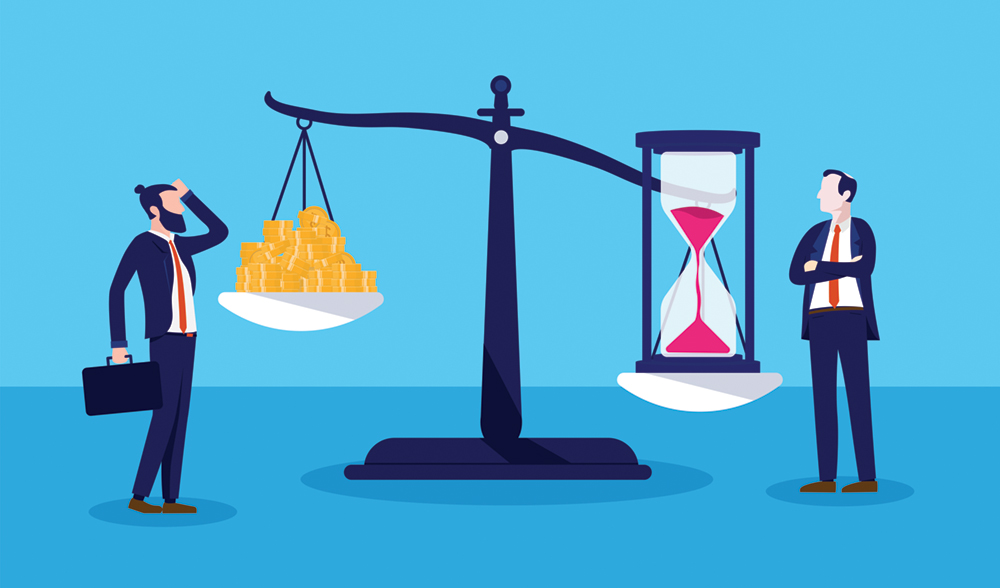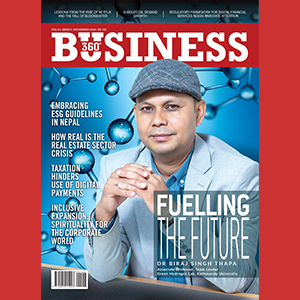
- Economics is all about opportunity costs.
Exchanging Crops for a Phone
Let’s say a farmer wants a new phone. He knows how to grow crops but can’t build his own phone. The farmer sacrifices his time to grow crops that he can sell to others for money. Once he obtains this money, he can buy a new phone. The owner of an electronics store sacrifices her time working at the store to earn money. What does she do with that money? She might buy the farmer’s crops at the grocery store. The money is just an intermediary for the time for both the farmer and the electronics store owner. While this is a simplistic example, this is how many transactions happen in our society. If you start thinking about money as time, then it might make you wiser with your money. Being wiser with your money could lead you to be more efficient with your time!How to Apply to Your Life
Here is a real-world scenario where you could apply this money as time principal. According to Kelley Blue Book the average new car price as of November 2022 was $48,681. Economics is all about opportunity costs. If you spend $48,681 purchasing a new vehicle, then that is $48,681 that you do not have to purchase something else. Let’s assume that you make the average hourly wage of $32.80/hour. We can find how many hours you would have to exchange for purchasing a new vehicle by dividing $48,681 by $32.80: 1,484 hours! That’s about eight months at 40 hours per week. (Once you take taxes into account, the number of hours will be even higher.) While you might normally ask if the car was worth $48,000, instead ask yourself if it’s worth 1,484 hours working at your job. Are you willing to spend 74 percent (1,484/2000) of a year working to purchase that new vehicle? If the answer is “yes,” then go for it and enjoy your new vehicle. If the answer is, “Hmmm I think I might be able to use those 1,484 hours more effectively somewhere else in my life,” then keeping your current vehicle could result in a wiser use of your time.What if you thought of money a little bit differently? When thinking about money, try substituting “my time” in place of “money” because time is often what you have to give up to receive money.I am currently in this scenario right now. I drive a 2011 Prius that only has around 75,000 miles. It runs great, does not need any major repairs, and gets about 50 miles/gallon. I don’t need a new vehicle, but I have been intrigued with the 2023 Rav4 and 2023 Prius. I utilized this process in my head and determined that it would require too many hours of my working life to pay for a newer vehicle that I don’t actually need. I would rather use those hours spending time with my friends and family, writing blog posts, creating YouTube videos, and staying healthy by playing beach volleyball and pickleball.
Words to Live By
You can utilise this thinking in many different scenarios. Just take the price of what you are considering buying and divide it by your hourly wage. That will tell you how many hours it will take you to work to pay for that next big purchase. Then decide if you are okay with that tradeoff. Here is one of my favourite quotes in the book The Psychology of Money by Morgan Housel. He states, “The ability to do what you want, when you want, with who you want, for as long as you want, is priceless. It is the highest dividend money pays.” Make sure you are being wise with your money so you can enjoy your time to the fullest! Source: fee.orgWhat is money? If you live in the United States, you probably think of money as dollar bills. People in Japan might think of the Yen. People in France, Germany, and Italy might think of the Euro. Economists Milton Friedman and Allan Meltzer describe money as “a commodity accepted by general consent as a medium of economic exchange. It is the medium in which prices and values are expressed; as currency, it circulates anonymously from person to person and country to country, thus facilitating trade, and it is the principal measure of wealth.” What if you thought of money a little bit differently? When thinking about money, try substituting “my time” in place of “money” because time is often what you have to give up to receive money.Exchanging Crops for a Phone
Let’s say a farmer wants a new phone. He knows how to grow crops but can’t build his own phone. The farmer sacrifices his time to grow crops that he can sell to others for money. Once he obtains this money, he can buy a new phone. The owner of an electronics store sacrifices her time working at the store to earn money. What does she do with that money? She might buy the farmer’s crops at the grocery store. The money is just an intermediary for the time for both the farmer and the electronics store owner. While this is a simplistic example, this is how many transactions happen in our society. If you start thinking about money as time, then it might make you wiser with your money. Being wiser with your money could lead you to be more efficient with your time!How to Apply to Your Life
Here is a real-world scenario where you could apply this money as time principal. According to Kelley Blue Book the average new car price as of November 2022 was $48,681. Economics is all about opportunity costs. If you spend $48,681 purchasing a new vehicle, then that is $48,681 that you do not have to purchase something else. Let’s assume that you make the average hourly wage of $32.80/hour. We can find how many hours you would have to exchange for purchasing a new vehicle by dividing $48,681 by $32.80: 1,484 hours! That’s about eight months at 40 hours per week. (Once you take taxes into account, the number of hours will be even higher.) While you might normally ask if the car was worth $48,000, instead ask yourself if it’s worth 1,484 hours working at your job. Are you willing to spend 74 percent (1,484/2000) of a year working to purchase that new vehicle? If the answer is “yes,” then go for it and enjoy your new vehicle. If the answer is, “Hmmm I think I might be able to use those 1,484 hours more effectively somewhere else in my life,” then keeping your current vehicle could result in a wiser use of your time. I am currently in this scenario right now. I drive a 2011 Prius that only has around 75,000 miles. It runs great, does not need any major repairs, and gets about 50 miles/gallon. I don’t need a new vehicle, but I have been intrigued with the 2023 Rav4 and 2023 Prius. I utilized this process in my head and determined that it would require too many hours of my working life to pay for a newer vehicle that I don’t actually need. I would rather use those hours spending time with my friends and family, writing blog posts, creating YouTube videos, and staying healthy by playing beach volleyball and pickleball.Words to Live By
You can utilise this thinking in many different scenarios. Just take the price of what you are considering buying and divide it by your hourly wage. That will tell you how many hours it will take you to work to pay for that next big purchase. Then decide if you are okay with that tradeoff. Here is one of my favourite quotes in the book The Psychology of Money by Morgan Housel. He states, “The ability to do what you want, when you want, with who you want, for as long as you want, is priceless. It is the highest dividend money pays.” Make sure you are being wise with your money so you can enjoy your time to the fullest! Source: fee.org READ ALSO:
Published Date: June 27, 2023, 12:00 am
Post Comment
E-Magazine

Click Here To Read Full Issue
RELATED Economics






